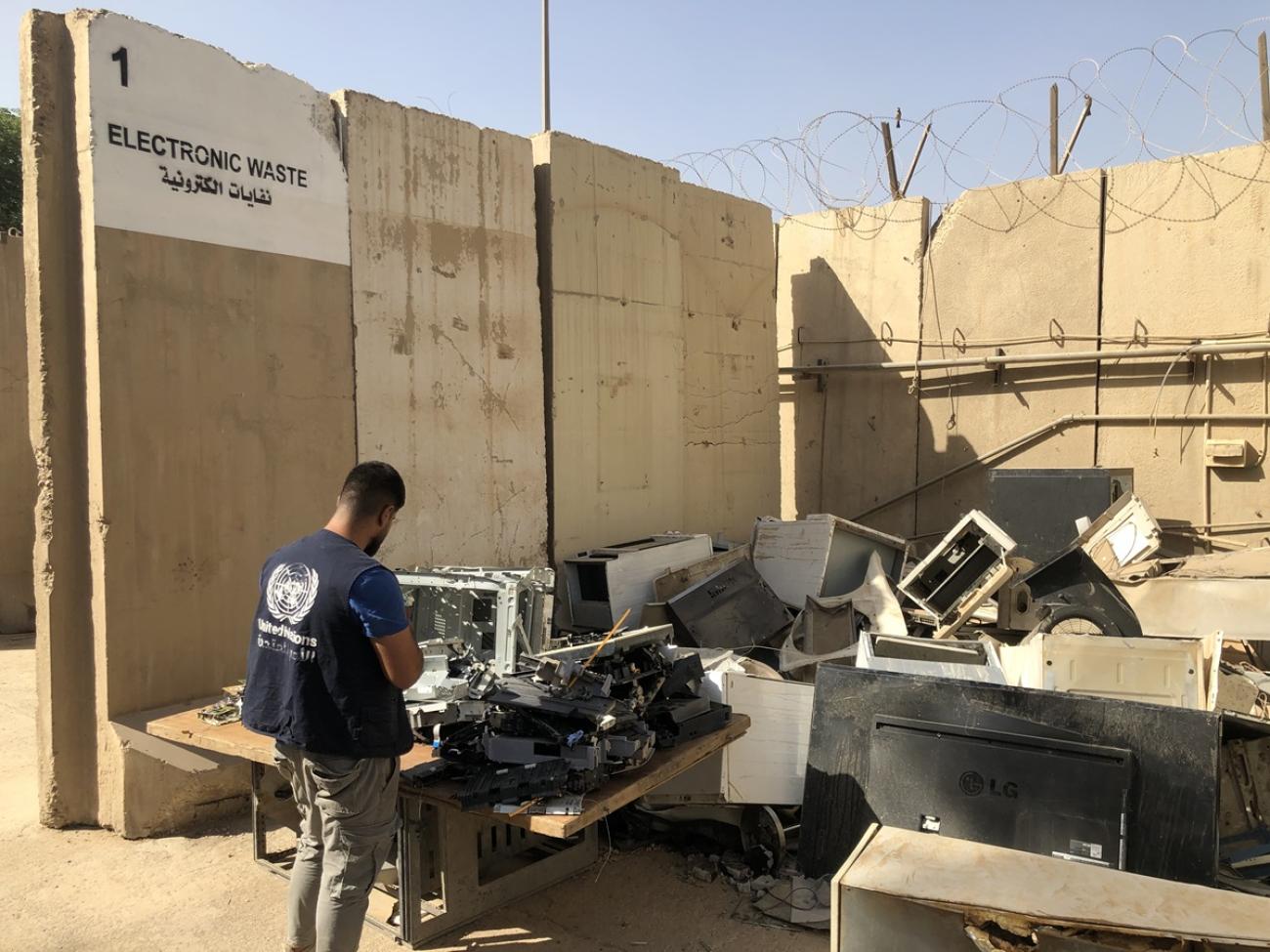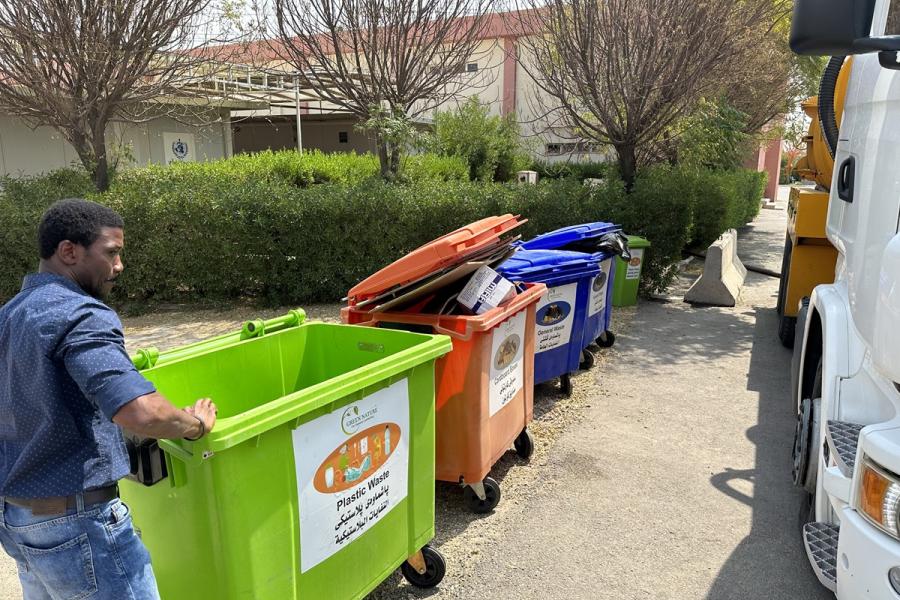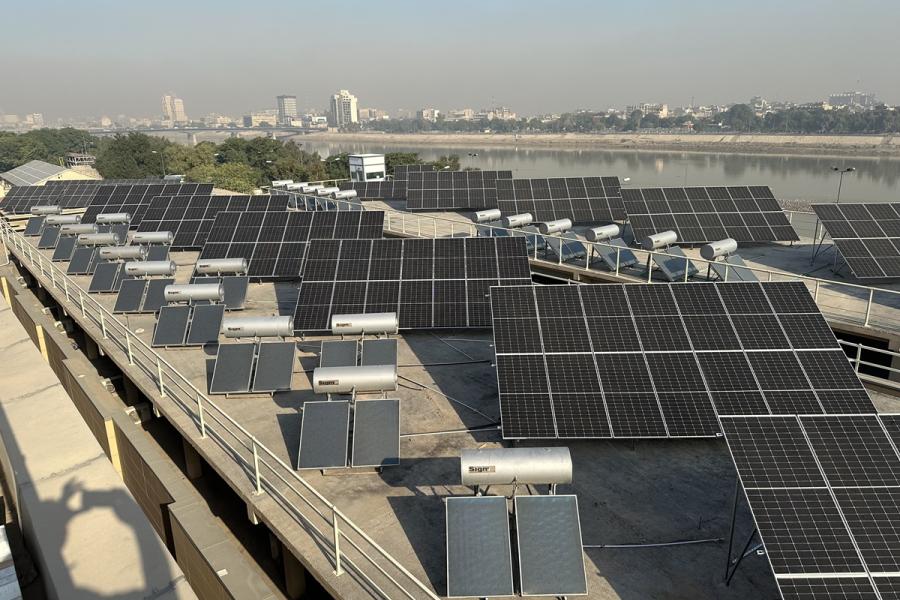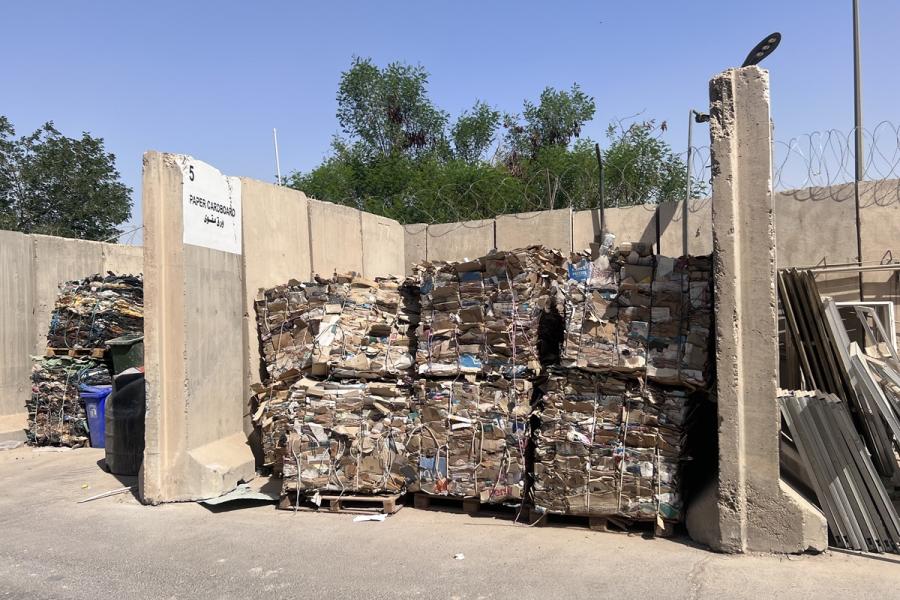Service is Stewardship

From Strategy to Reality: A Case Study with the United Nations Assistance Mission for Iraq (UNAMI)
In light of the priorities identified in the United Nations Department of Operational Support (DOS) Environment Strategy for Peace Operations, the United Nations Assistance Mission for Iraq (UNAMI) is setting a valuable example in implementation. Driven by UNAMI’s dedication to environmental stewardship and operational efficiency, and engaging the support of the United Nations Global Service Centre (UNGSC), the mission is making great progress in transitioning to renewable energy, while reducing costs, and contributing to a positive legacy.
Deploying turnkey renewable systems, which integrate multiple energy sources, UNAMI is able to generate 5 GWh of clean energy annually, which amounts to approximately 50% of total annual energy use, and USD 0.5 million in yearly savings. Harnessing the power of the sun reduces UNAMI’s reliance on traditional energy sources and demonstrates the feasibility and potential of renewable energy in the region. Embracing microgrid technology, UNAMI is set to install energy storage solutions that will eventually render diesel generators obsolete [currently, diesel generators remain a secondary back-up power source, with batteries serving as the first back-up]. These conservation measures complement UNAMI’s sustainable energy management efforts, optimizing energy usage across facilities, adopting energy-efficient practices, and fostering a culture of environmental awareness among personnel. The programme also has the potential for excess energy penetration into the local grid. This forward-thinking approach aims to strengthen the local energy infrastructure and leave a positive legacy in the host community without incurring additional cost.
In support of UNAMI’s vision and commitment to sustainability, the United Nations Global Service Centre’s Environmental Technical Support Unit (ETSU) helps to advance these efforts. UNAMI Environmental Affairs Officer, David Saginadze, explains: “UNAMI operates in a region where environmental concerns are critical; we are therefore taking bold steps to mitigate our environmental footprint. My responsibility entails offering support and implementing initiatives alongside the Office of Chief Mission Support (OCMS) to enhance the mission’s environmental performance. Our mission aims to achieve ambitious targets to contribute to the Sustainable Development Goals (SDGs). These objectives include increasing the share of renewable energy by 50% of the mission’s total demand, transitioning towards zero waste to landfill, and reducing freshwater consumption by an impressive 40%.
“UNAMI operates in a region where environmental concerns are critical; we are therefore taking bold steps to mitigate our environmental footprint” - David Saginadze, UNAMI Environmental Affairs Officer

One of the elements in accomplishing these targets has been the valuable support provided by UNGSC’s Environmental Technical Support Unit (ETSU), which commenced during the design phase of our solar photovoltaic (PV) installation. Their technical support and recommendations ensured the efficient and effective setup of our solar infrastructure, optimizing renewable energy generation and utilization within our mission.
Their input was also instrumental in solid waste management and wastewater treatment: The selection and installation of equipment for our waste management systems enabled us to move towards the mission’s objective of a more sustainable waste management process. Their recommendation and support with the implementation of a high-quality Moving Bed Biofilm Reactor (MBBR) for our wastewater treatment systems significantly enhanced our wastewater treatment capabilities, ensuring lower risk, higher efficiency, and adherence to environmental standards.
This project also involved inter-agency cooperation with UNICEF, based on their vast local experience incorporating wastewater treatment technologies in Iraqi hospitals. Through this partnership, we were able to reduce freshwater consumption in UNAMI-managed facilities and amplify environmental benefits by reusing treated water to deploy an automated irrigation system, clean solar PV panels, produce compost, and support sanitation.

Overall, these effective collaborations have helped UNAMI make considerable strides in its environmental sustainability programme, as well as build excellent technical capacity in the UNAMI Engineering Section. Together, we are committed to not only meeting but surpassing our environmental goals, setting a precedent for innovative, sustainable practices within other UN field missions.”

Capacity building and knowledge-sharing based on UNAMI’s experience and that of other missions implementing the DOS Environment Strategy are facilitated by environmental communities of practice. To explore this resource and learn from practitioners in technical and management areas, from both UN Headquarters and the field, visit https://ungsc.org/our-networks or contact environmental@un.org .
Content for this article was sourced in part from the DOS Environmental Good Practice 2023 report.


